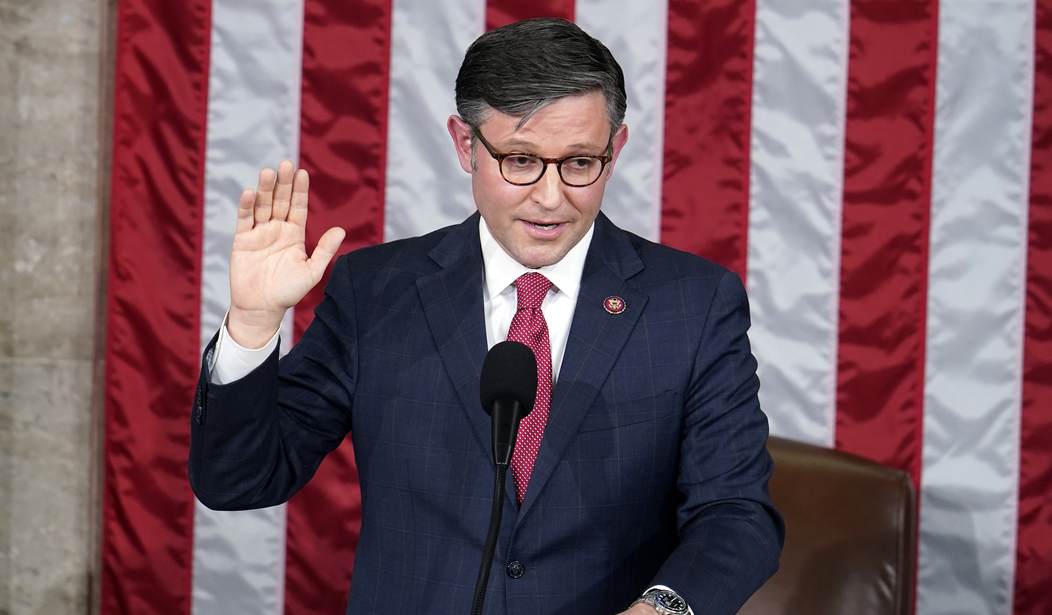Late Tuesday afternoon, the U.S. House voted in favor of a Continuing Resolution to fund the government into early 2024. After Democratic lawmakers announced their support of the measure, it was clear that it would pass, objections of the House Freedom Caucus notwithstanding.
The final vote in favor of the measure was 336 to 95, with 209 Democrats and 127 Republicans voting in favor of it. 93 Republicans and two Democrats voted "nay" on the resolution; one Republican and two Democrats did not vote on it. (Side note: Nancy Pelosi (D-CA) was one of the non-votes — presumably, she's focused on the David DePape trial in San Francisco at the moment.)
The resolution will now head to the Senate, where Majority Leader Chuck Schumer (D-NY) plans to take it up right away.
Some will note that the measure is remarkably similar to the one passed at the end of September, which ostensibly led to the ouster of former Speaker Kevin McCarthy (R-CA), yet Tuesday's vote is viewed as a win for his successor, Mike Johnson (R-LA).
The bill’s passage was the first big legislative test for Speaker Mike Johnson, R-La., who took on the role less than a month ago shortly after ex-Speaker Kevin McCarthy, R-Calif., was ousted.
Despite more Democrats voting for it than Republicans, Johnson did net a win in getting a majority of his GOP Conference to support the CR.
Johnson’s plan, released on Saturday, creates two separate deadlines for funding different parts of the government to set up more targeted goals to work toward.
It would also in theory prevent Congress from lumping all 12 spending bills into a massive "omnibus" package, such as the one passed by House and Senate Democrats last year but opposed by the GOP.
It first forces lawmakers to reckon with some of the traditionally less controversial appropriations bills — those concerning military construction and Veterans Affairs; Agriculture; Energy and Water; Transportation and Housing and Urban Development — by Jan. 19. The remaining eight appropriations bills must be worked out by Feb. 2.
Despite the similarities between the measures, it appears that Johnson has a better rapport at present with the members of his caucus. At a minimum, he's not getting into shoving matches with them or dodging dueling ethics complaints.
Still, he has a tough road ahead if he hopes to meet the next spending deadline.
With the continuing resolution now in the rearview mirror, the House will shift its attention to meeting the next spending deadline — and Johnson is vowing to do it through regular order, ruling out any future short-term spending bills.
“I hate CRs as much as everyone does. It is not the way you’re supposed to do it,” Johnson said Tuesday morning on CNBC. “And we’re going to get right back to the regular budgeting process.”
“We’re not going to do this again,” he added. “We’re not doing this under my leadership.”
That plan is sure to make for a busy — and likely chaotic — next two months that could bring Congress to the brink of another shutdown. House Republicans have been forced to punt on a handful of appropriations bills because of disagreements within the conference.
Johnson, however, appears up for the task as he settles into his new role.
“Not much of a honeymoon in this job,” he told CNBC. “The crises are too great.”

